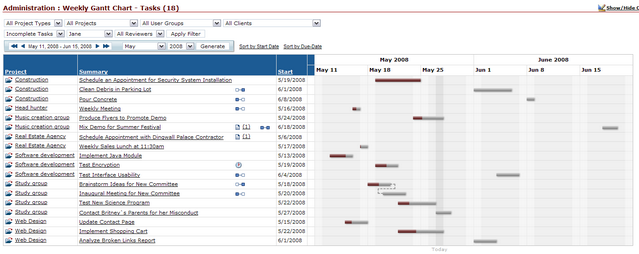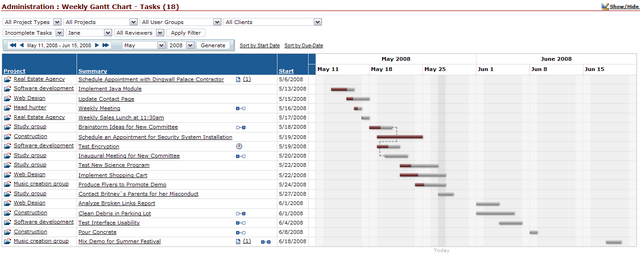Now that you’re late, how do you deal with it?
Being late happens, even to the best projects. And when it happens, you need
to deal with it. The longer you ignore a delay, the higher the chances of the
delay growing longer.
So how do you deal with a task being late in your project? Or the project
itself being late?
Oh my god Oh my god Oh my god Oh my god Oh my god Oh my god
Panic. Run around in circles. Feel really bad about it.
Does it make the delay better? It at all, it makes things worse. There is
nothing to gain from panicking about a delay.
It's not my fault
Trying to avoid the blame maybe understandable, I fail to see how it gets
you on the track to being on time. Would it be worse if it was your fault? At
least you could do something about it!
It's [insert name]'s fault
While the blame game is an all-time favorite, here again I fail to
see how that helps the project. Pointing fingers takes time and if you're late,
you can't afford to waste time focusing on who messed up.
Why it's […]

